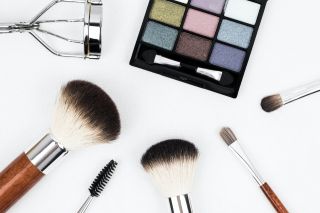
What would you do for love? Everyone wants to be better looking, more beautiful, and more appealing to potential romantic partners. To accomplish that, we put a lot of effort into enhancing our appearance through the clothes we wear, cosmetics, and trips to the gym.
Improving our looks extends beyond mere vanity and has other benefits for our relationships. Specifically, being better looking gives us an evolutionary advantage in ongoing relationships because it helps us retain our current partner. When we’re more appealing, our partner will find alternatives less appealing.
What would you do to protect your relationship? How far would you be willing to go to make yourself more beautiful?
That’s what researchers wondered. They suspected that individuals with more jealous tendencies would be particularly protective of their relationship and more willing to consider using risky and or costly methods to enhance their appearance.
The Low-Risk and High-Risk Behaviors
To test this, the researchers surveyed 189 undergraduate females aged 17 to 37 years old, all currently in committed relationships.
To assess the jealousy level of participants, questions asked how often they suspected their partner was secretly seeing someone else, if they would be upset if their partner flirted with someone else, and how much they questioned their partner about previous relationships.
The researchers also wanted to determine participants’ interest in enhancing their appearance, including activities with varying degrees of risk. For example, they asked participants about low-risk activities such as how much money they spent on appearance-enhancing goods and services such as skin treatments or products, make-up, clothing, jewelry, and hair styling. They also asked how often women used facial cosmetics.
To assess riskier behaviors, researchers inquired about their openness to cosmetic surgery: “It makes sense to have minor cosmetic surgery rather than spending years feeling bad about the way you look.” “If a simple cosmetic procedure would make me more attractive to others then I would think about trying it.” And, “If I could have a surgical procedure done for free, I would consider trying cosmetic surgery.”
Finally, they asked about potentially high-risk behaviors (for example, a free tanning membership) and obviously risky behaviors (for example, taking a diet pill that had a known link to future heart problems).
What They Found About Jealousy
Overall, more jealous participants sought to elevate their attractiveness through a variety of behaviors. Specifically, women who indicated higher jealousy also reported spending more money on their appearance, greater openness to plastic surgery, greater willingness to use a tanning membership, and greater likelihood to use a dangerous diet pill.
There was no link between jealousy and the intended use of facial cosmetics. The lack of association with cosmetic use is likely because using make-up is a fairly common and low-risk behavior that is highly socially acceptable (even encouraged).
Boosting one’s beauty can help hold onto a current partner amidst perceived threats from rival partners who may threaten the relationship. That sounds noble, romantic even. However, willingness to engage in clearly dangerous behavior is a concern. Why would you willingly take a diet pill that you knew was linked to significant health problems later on? Apparently, part of the answer to that question is jealousy.
But why? Jealousy results from a concern that you will lose someone you care for. In this study, participants may have decided that the present potential reward (keeping their partner) outweighed the future cost of having heart problems. That could be due to the participant’s age. However, ignoring the long-term implications of short-term benefits is a human issue across all ages.
Importantly, these findings don’t say that enhancing your appearance is bad. While romantic jealousy may drive women towards appearance enhancement, wanting to optimize physical attractiveness is common. Yet, there's a fine line between healthy self-improvement and potentially harmful procedures or drug use. Maintaining a balanced and mindful approach to self-improvement or beauty-enhancing practices is important.
We often wistfully and romantically ask, “What would you do for love?”
Perhaps, a better question is, what shouldn’t you do for love?
"behavior" - Google News
August 09, 2023 at 10:11PM
https://ift.tt/a4mdn1P
How Jealousy Encourages Risky Relationship Behaviors - Psychology Today
"behavior" - Google News
https://ift.tt/7DJzKfi
Bagikan Berita Ini














0 Response to "How Jealousy Encourages Risky Relationship Behaviors - Psychology Today"
Post a Comment